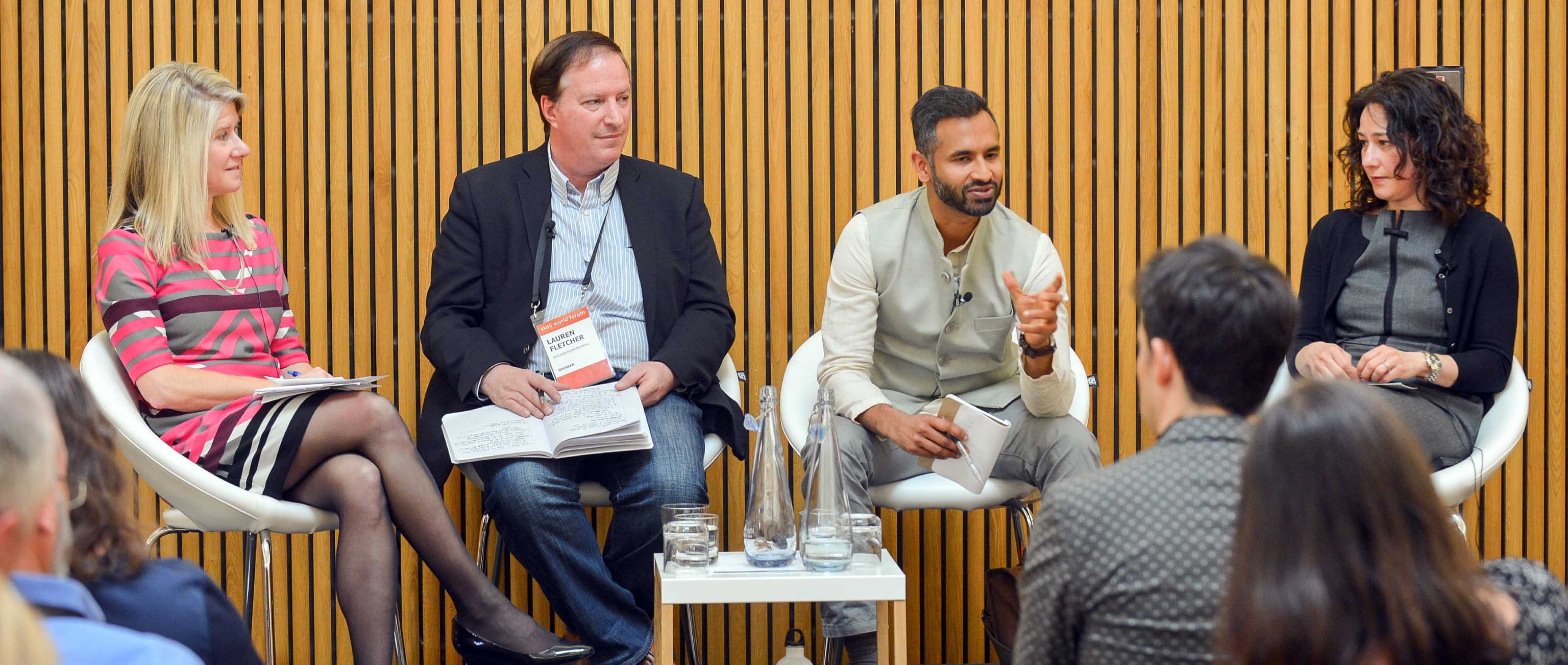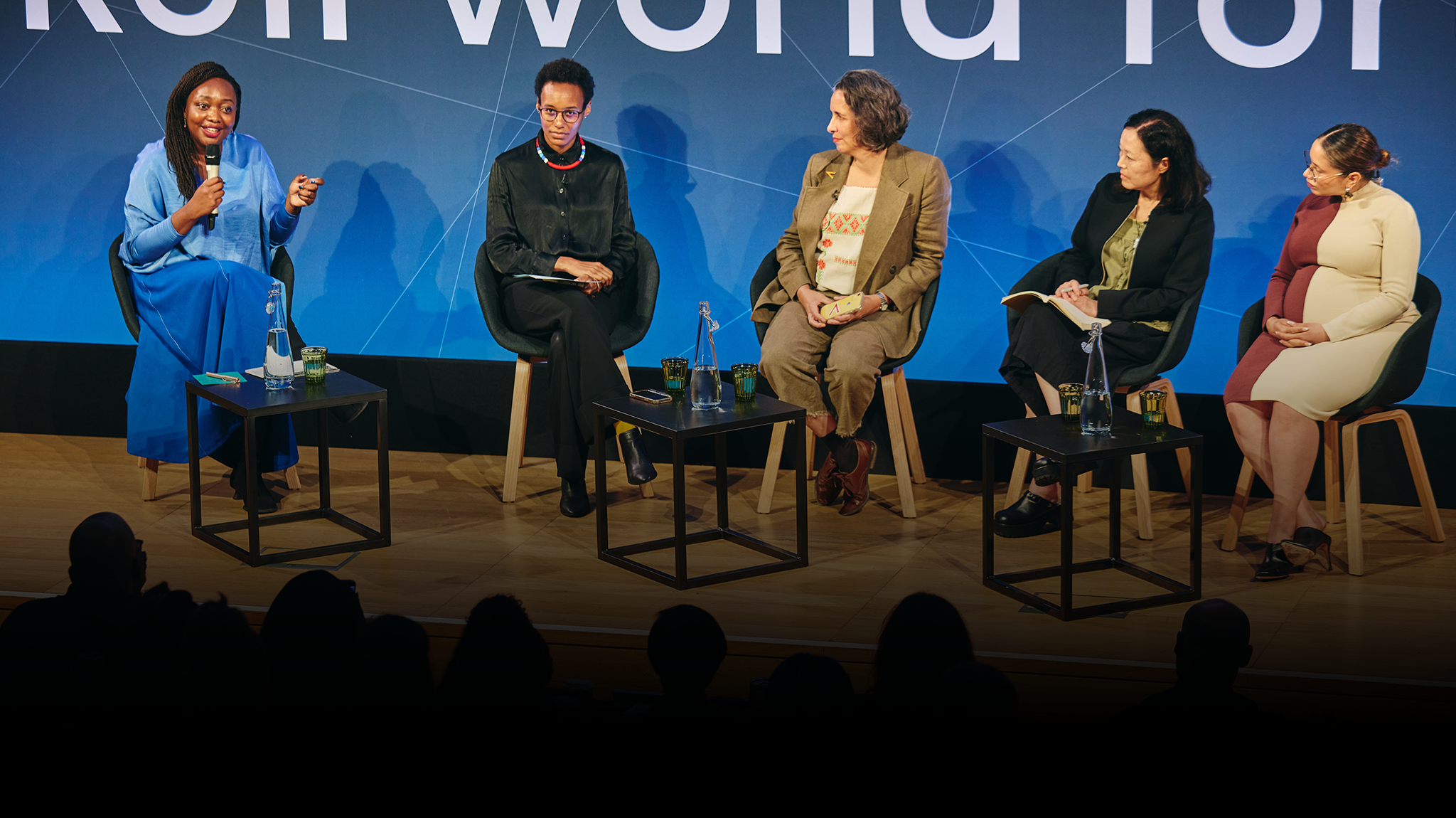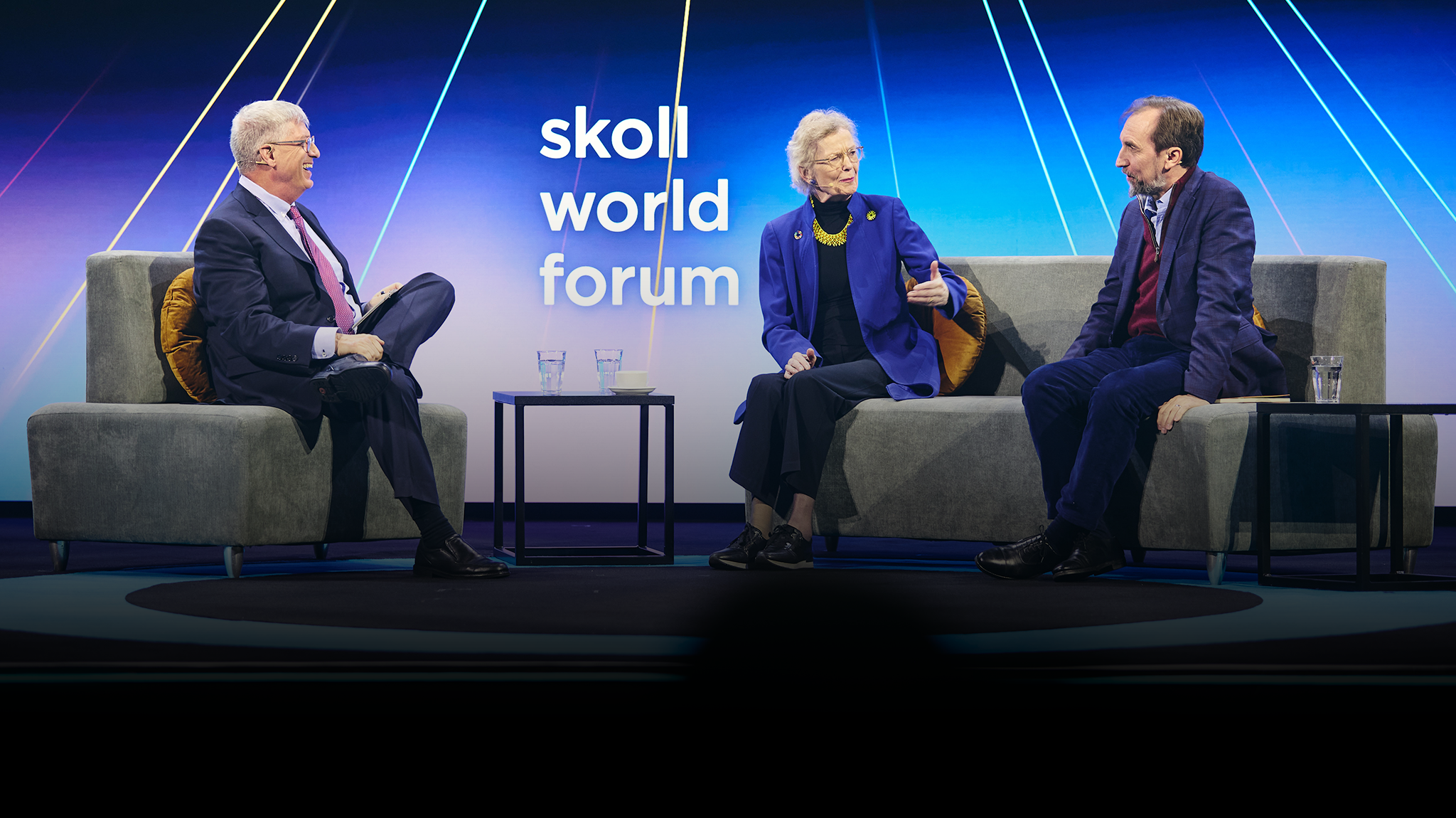Skoll World Forum 2017 Reflection: Global Goals in an Uncertain World
Walking into the session, a question buzzed in my head: can we 7B+ humans prove to ourselves that ‘sustainable development’ isn’t an oxymoron, in just 14 short years? Susan Myers—panel moderator, and Senior Vice President of the United Nations Foundation—echoed this urgency by kicking the session off with a reading of Sally Osberg’s call-to-action in the Forum program: “Now is a moment to renew our common cause, to forge bold partnerships, to bridge all that divides. Now is the moment we must reunite with those left behind or spurned. Now is the moment to embrace our common humanity.”
The 17 Sustainable Development Goals and 169 associated targets are an expression of that common cause, such as SDG 1, “end poverty in all its forms everywhere” by 2030. And the grand ambition of these goals demands bold partnership, with allies new and old. But a palpable doubt hovered in the room: can progress on the SDGs be sustained, and even accelerated, in a time of global sociopolitical turmoil?
Given that the SDGs are universal, and necessarily involve the entire world, each of us holds a small but vital piece of the whole suite of Goals. And according to the U.N., the SDGs are meant to be a platform through which agents of change can “channel their infinite capacities for activism into the creation of a better world.” The session panelists were excellent exemplars:
- Vivek Maru heads Namati (2016 Skoll Awardee), a global movement of grassroots legal advocates—also known as ‘community paralegals’—who help the disenfranchised understand and exercise their legal rights. In service of SDG 16 (“provide access to justice for all”), Namati deploys hundreds of advocates to serve thousands of clients, and convenes the Global Legal Empowerment Network, which fosters learning and collaboration among a community of 1,000+ member organizations across 150 countries. In fact, the Network was instrumental in pressuring the U.N. to include the 16th SDG, up to the night before ratification!
- Lauren Fletcher heads BioCarbon Engineering, which develops drones that plant trees, by first mapping planting areas—to understand ground typology, soil type and moisture, etc—and then firing biodegradable seedpods into the ground. (At this point in Lauren’s description, the audience’s collective jaw had dropped.) The company is currently working to plant 1B trees per year, and can potentially scale to tens of billions of trees, to offset the 15B trees that are destroyed annually. In service of SDG 15 (“protect, restore, and promote sustainable use of terrestrial ecosystems”), BioCarbon Engineering’s efforts to solve local problems at scale have global ramifications.
- Elissa Golberg is Assistant Deputy Minister – Partnerships for Development Innovation at Global Affairs Canada, a government agency that works with civil society, universities, the private sector, and others to deploy hundreds of millions of dollars in development aid to 100+ countries. Not only has the agency prioritized “making a strong contribution to achieving the SDGs,” Prime Minister Justin Trudeau’s enthusiasm for the Goals is concretely reflected in Canada’s national budget and in his mandate letter to the country’s ministers. Per Elissa, “the boss has spoken.”
In light of impending cuts to the United States’ foreign aid budget, I was heartened by another country’s willing embrace of the Goals. In service of SDG 17 (“revitalize the global partnership for global development”), Global Affairs Canada uses the SDGs as a policy framework, encourages other ministries to connect their work to the SDGs, and supports regional conversations to spur local-level contributions to achieving the Goals. For example, the agency has already mapped sentiments and ideas on the SDGs among hundreds of communities in British Columbia. However, Elissa noted that more space for such conversation must be created; the United Nations isn’t currently a ‘networked’ environment and doesn’t sufficiently facilitate conversation and partnership at different levels, such as among cities and regions across borders.
While the panelists and their respective organizations carry important pieces of the whole, each in impressive ways, I remained fixated on Elissa’s point regarding the U.N. There seems to be a mismatch between the interconnectedness and indivisibility of the SDGs, and the fragmentation among governments and the global institutions responsible for driving progress towards the Goals. But later in the session, my ears perked up when a couple of people in the audience posed related questions, to the effect of: given that many of us are working in parallel, how can we exit our silos, best ‘connect the dots’, and collaborate more? And I had a follow-up question, which I didn’t get a chance to ask: given that we’re in a critical moment in human history, and that efficiency is a moral imperative, what new systems do we need as a species to coordinate our efforts in order to achieve the SDGs in time?
The room didn’t arrive at clear answers to these questions but the discussion repeatedly turned to a couple of requirements for achieving the SDGs: the importance of acting on the global Goals at the local level, and mobilizing businesses and private capital. For example, Susan pointed out a report recently published by the Business and Sustainable Development Commission, which found that the economic prize of achieving the SDGs by 2030 is worth tens of trillions of dollars in business savings and revenue. And, according to one estimate presented in the report, just achieving gender equality (SDG 5) alone could contribute up to $28T to global GDP. That’s a powerful business case!
I left the session feeling cautiously optimistic, and later recalled a notion of Buckminster Fuller. “We know now what we could never have known before—that we now have the option for all humanity to ‘make it’ successfully on this planet in this lifetime,” he wrote. “Whether it is to be Utopia or Oblivion will be a touch-and-go relay race right up to the final moment.”
For better or for worse, this is an exhilarating time to be alive.



